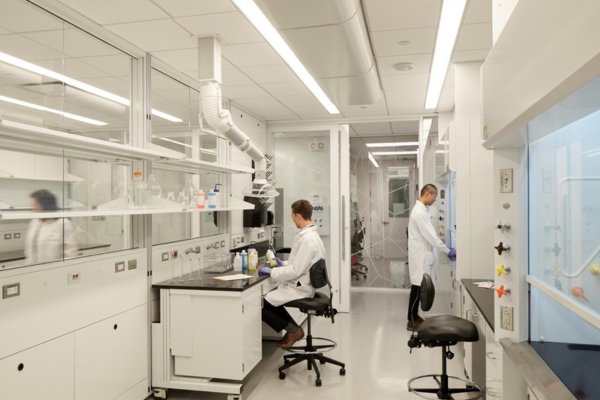Houston Primed for Life Sciences Boom
Published May 17, 2023 by Javier Vargas
The life sciences industry is a global force driving medical innovation and advancements in health care. From pharmaceuticals and biotechnology to medical devices and diagnostics, this sector plays a crucial role in improving the quality of life for people around the world. As the industry continues to grow and evolve, new hubs of innovation are emerging, each with its unique strengths and advantages.
Houston is a world-class region with a thriving innovation economy. With a high concentration of employment, healthy funding scene, and unwavering commitment to translational research, the Houston region has positioned itself as one of the country's fastest-growing life sciences ecosystems - ranking #13 in a 2022 CBRE industry study. Bright scientific minds, entrepreneurial drive and an active investment community gives companies fertile ground for disruptive innovation in biotech and life sciences.
The Texas Medical Center (TMC), the world's largest medical district, offers companies a unique opportunity to collaborate and implement technology in one of the largest healthcare ecosystems. TMC and the variety of research institutions and innovative companies who operate in Houston are taking on the greatest medical challenges of our generation.
Houston is home to over 1,700 life sciences and health care companies and establishments, making it a top-15 market for life sciences employment nationwide and first in Texas. This robust and diverse workforce, coupled with an extensive education infrastructure and world-class research institutions, makes Houston a prime location to support growth across key subsectors like cell and gene therapy manufacturing, molecular diagnostics, and biologics drug development and manufacturing.
In addition to established companies, Houston has a vibrant startup ecosystem that provides support and resources for early-stage companies. The city has several startup incubators and accelerators, including TMCx, which is located within the Texas Medical Center and provides startups with access to mentors, funding, and other resources. TMCx has hosted over 300 companies with over $5.8 billion raised. Additionally, Houston has a strong network of angel investors and venture capitalists that are actively seeking out innovative life sciences companies to invest in.
With the densest patient population in the world, Houston allows for transformational clinical applications. The region ranks second in the nation in clinical trial volume, with 4,906 active clinical trials in 2022, representing over 20 percent of all active U.S. trials. Companies located in Houston can also leverage unique funding programs. In 2022, National Institutes of Health (NIH) awarded 1,752 grants totaling $961 million represented for Houston. The Cancer Prevention and Research Institute of Texas (CPRIT) has also committed $6 billion in funding for groundbreaking cancer research, prevention and product development programs for companies located in Texas. Since its inception in 2009, CPRIT has awarded more than $3 billion in grants for cancer research, of which MD Anderson has received approximately 20 percent.
Houston also has a growing number of life sciences developments that encourage innovation and collaboration between industry partners.
- Generation Park, a 4,200-acre master-planned development, is creating a thriving ecosystem for companies to grow and provides a place where education and industry can converge. It will be the home of the San Jacinto Biotechnology Center, a biomanufacturing workforce institute that will offer certificate coursework in bioprocessing to students as part of a strategic partnership with the National Institute for Bioprocessing Research and Training (NIBRT).
- TMC Helix Park is another life sciences development that will provide 6 million square feet of research labs, retail, hotel, and large scale commercialization space, in addition to TMC3, a collaborative research building with four founding institutions. According to the Real Deal, the University of Texas MD Anderson Cancer Center plans to build a $668 million laboratory expansion that will connect to TMC Helix Park. Construction is expected to begin in September, with completion estimated in late 2027.
- Levit Green is a 53-acre mixed-use life sciences district under construction near Texas Medical Center that is expected to be completed this year. The initial five-story building will create 294,000 square feet of space overlooking a plaza and a man-made lake.
- Texas A&M Innovation Plaza located in the Texas Medical Center is expected to be completed in 2024. Consisting of research facilities, affordable student housing, office space, retail space and parking, the Innovation Plaza will be home to the Texas A&M Engineering Medicine (EnMed) program and provide student housing for the Prairie View A&M University’s College of Nursing. This project is part of Houston's ongoing investment in programs that will grow the talent pipeline and prepare its future workforce.
The Partnership’s economic development team will be attending BIO International in Boston from June 5-8th to spotlight the region’s thriving life sciences ecosystem and its unique opportunities for innovation and growth.
 The Houston Report
The Houston Report



















